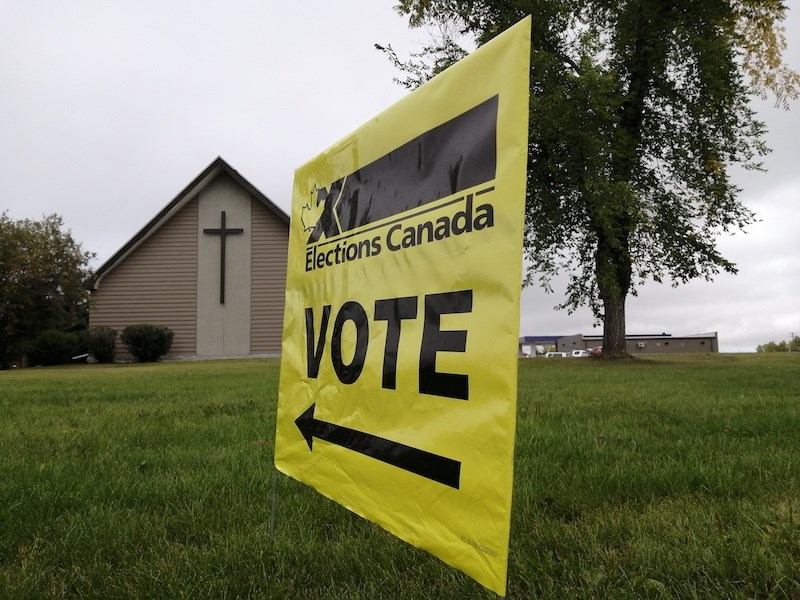In the aftermath of elections, voters are often described as having embraced one candidate's or party's or leader’s vision or, more often than not, since the accepted wisdom is that people vote against governments rather than for them, of rejecting another one’s plan. But in the case of the federal election Canada dutifully trudged through on Sept. 20 after a similarly lacklustre campaign, “embrace” and “reject” seem like pretty strong terms to thrown around. What happened was more like everybody shrugging their shoulders, emitting a non-committal verbal grunt of lukewarm acceptance and essentially not changing anything at all.
What Prime Minister Justin Trudeau’s $600-million exercise in participatory democracy did was pretty much redistribute six seats – five held by independents and one that was vacant at the time of dissolution – among three parties, with the Liberals picking up, as of Sept. 24, four from what they closed the last Parliament with, the Bloc Québécois one and the NDP one. The Conservatives and Greens stayed where they were and the People’s Party of Canada were elected nowhere, though they did pick up a disturbingly large percentage of votes – higher, in fact, than the Green party did, though it didn’t translate into any Members of Parliament because it was dispersed across many ridings, rather than concentrated in one or two.
What Canadians seem to have said is that they aren’t exactly thrilled with the Liberals but not so disillusioned as to turf them out of office. It also seems like they aren’t totally sure about Conservative leader Erin O’Toole and that they like NDP leader Jagmeet Singh about as much as they did last time. Once again, the Liberals are going to have to convince other parties to work with them in order to pass legislation, since they are 11 seats shy of a majority. Canadians might like to hope that they won’t be heading back to the polls until four years from now, but minority governments don’t usually last that long. All that compromising gets tiresome to elected officials. Probably the best way to ensure than an election doesn’t happen again too soon is to be sure not to approve too highly of Trudeau's government or to disapprove of it too much either. Move too much in one direction or another and either he or the leader of another party, most likely the Conservatives, will think that maybe they have a chance to capture a majority or at least the most seats by either calling or forcing an election. Canadians should remain on the fence, which is pretty much what they did collectively on Monday.
Here in Northern Manitoba, reading the political tea leaves reveals equally ambiguous messages. The NDP incumbent, Niki Ashton, elected for the fifth time by a substantial margin over the Liberal and Conservative candidates is still the most popular, has the best get-out-the-vote strategy, the largest and most motivated base or the most name recognition (probably a little of each). She didn’t get as many votes as she usually has but the low 40s in percentage terms is plenty to capture the seat, especially when there’s more than one other viable candidate to split the vote. Some of that drop can be attributed to former supporters who were angry at her decision to travel to Greece to see her sick grandmother during the COVID-19 pandemic deciding to vote for someone else instead or to not bother voting at all.
Given the circumstances under which this election took place, it is also difficult to know what the significant drop in turnout signifies. Obviously, the fact that about 25 per cent fewer people took the time to mark ballots this time around than in 2019 could reflect, in part, the fact that there are fewer voting age residents in Churchill-Keewatinook Aski now than there were two years ago and that some of those who have moved away or died were probably voters. As for the rest of the people who voted in 2019 but didn’t bother this time around, many factors come into play. Some may not have liked any of the candidates. Probably a larger role was played by ongoing concerns about the pandemic, even though Manitoba is still experiencing a mild fourth wave. It’s likely some have given up on federal politics as a way to have their voices heard, not unreasonably, since the only voices that really matter once MPs get to Ottawa are those of the party leaders. Regardless, declining turnout can not be considered a good thing, except among those who think that some people shouldn’t be voting. When apathy becomes the rule of the day, citizens are separated into a small group that makes the decisions and a much larger group that also has to abide by those decisions – what’s commonly referred to as an oligarchy.




